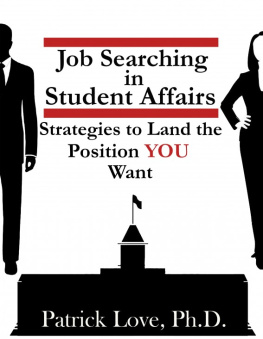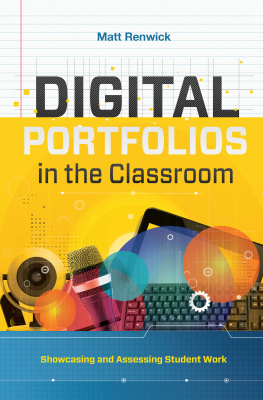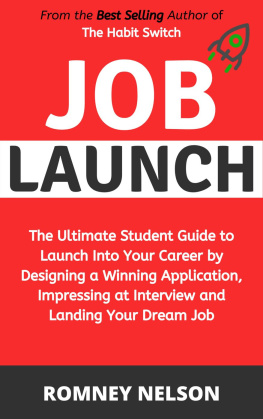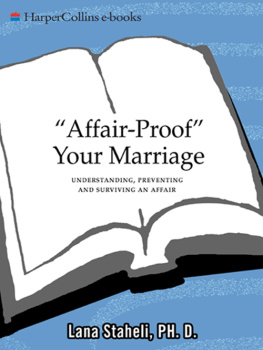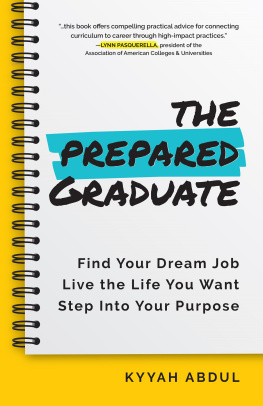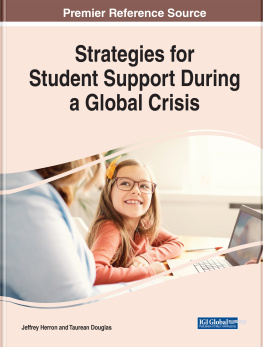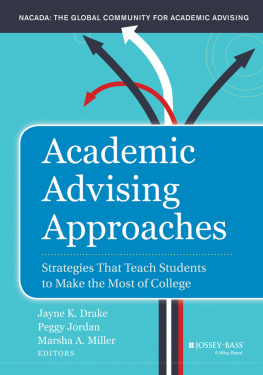Job Searching in Student Affairs:
Strategies to Land the Position YOU Want
Patrick Love, Ph.D.
Published by Patrick Love at Smashwords
Copyright 2015 by Patrick Love
This ebook is licensed for your personalenjoyment only. This ebook may not be re-sold or given away toother people. If you would like to share this book with anotherperson, please purchase an additional copy for each recipient. Ifyou are reading this book and did not purchase it, or it was notpurchased for your use only, then please return to your favoriteebook retailer and purchase your own copy. Thank you for respectingthe hard work of this author.
What Others Are Saying
This is the new must read, go-to guide forthe SA job search. Dr. Patrick Love efficiently dispenses insiderknowledge, utilizing real stories from 30 years of experience whileproviding specific, definitive tactical advice. Successful searcheswill start here. Now go build the career of your dreams!
Teri Bump, Vice President, American CampusCommunities
This book fulfills a niche that has goneunfulfilled: a common sense, straight talk approach to the studentaffairs job search process. Rather than being prescriptive, many ofthe tips and topics covered in this book come from the wisdom ofthe author and its wisdom you would be well advised to heed. Thereare many unique aspects and unwritten rules to the student affairsjob search process and someone is finally giving that voice. Iwould suggest any graduating masters student and new professionalread this book.
Paul Gordon Brown, Speaker, Consultant, andEducator
Over the past two decades, I have personallybenefitted from Patrick Loves candid job search advice on multipleoccasions. I have also regularly repeated that advice to my ownstudents personally and shared his thoughtful blog posts with them.His advice is particularly useful for current student affairsgraduate students who are beginning their post-Masters job search.However, I am confident that current student affairs professionalswill also gain insights from Patricks frank advice. I highlyrecommend this book.
Dr. John Wesley Lowery, Professor, IndianaUniversity of Pennsylvania
~~~~~~~~~
Job Searching in Student Affairs:
Strategies to Land the Position YOU Want
Table of Contents
~~~~~~~~~
Chapter One
TheStudent Affairs Job Search
The first interview I ever had was for anundergraduate peer judicial board position. I went into it totallyunprepared. So unprepared that when asked, Why should we selectyou? I could not answer the question. I pulled a complete blank. Iwas mortified and swore that would never happen again. Well, I havehad bad interviews since then, but that first experience led me toa career-long quest to understand and master the search andselection processspecifically focusing on the job search. When Ibecame a preparation program faculty member 20 years ago and begandealing with stressed out second year student affairs mastersstudents, I became even more determined to unpack the process inorder to help them. This book shares what I have learned bothpersonally and as a mentor on how to manage and succeed in the jobsearch process.
The student affairs job search, especiallyfor second year masters students, is a process often fraught withstress, frustration, fear, and anxiety. I have seen this throughoutmy career as both a practitioner and as a preparation programfaculty member. As a professor and supporter, I tried to deal withthe anxiety by listening, advising, counseling, and beingencouraging. From these myriad conversations over the years, Ilearned of the various emotional and psychological challenges thisgroup faced and how they managed them. I also gained a betterunderstanding of the various parts of the search process, which hasenabled me to effectively advise members of our field how tosuccessfully navigate it.
After years of doing just that and developingmy own perspectives on the subject, I conducted workshops for mystudents and other professionals on the job search, on resumewriting, on interviewing, on negotiating, etc. In the last coupleof years I have written and published blog posts on various topicsrelated to the job search trying to reach and assist a wideraudience. Writing this book is the next natural stepto pulltogether my perspectives and advice in one place in order to helpas many members of the profession as I can.
Audience and Author
Who is the audience for this book?
The main targets for this book on the studentaffairs job search are masters students and new professionals.They are the people I most desire to assist and it is theirparticular challenges I have worked hardest to understand. However,I like to think that even seasoned folks will find some of theperspectives and tips offered in these pages useful, if only tothink about their own job searches differently.
Why me?
The main reason I am the person to write thisbook is because I love the job search process. I love thinkingabout it, reflecting on it, and observing it. I learned a lot alongthe way and came to realize that some of the conventional wisdom ofthe search process is wrong. I have been reflecting on andobserving this subject for a long time, having started graduateschool in the late 1970s. I have been through more than a few jobsearches myself, having worked at 11 different institutions. I alsohave had a lot of direct experience with job searches. I have beena member of dozens of search committees (and have chaired many ofthese) for positions ranging from hall directors to vicepresidents, and even including faculty and academic administrators.Moreover, as I mentioned above, I was a faculty member in CollegeStudent Affairs masters programs for 17 years where I workedclosely with masters students on their unique job search. [Note:It is unique because they are applying for positions from aterminal experiencecompleting a masters degree. In the futurethey will be applying for new jobs while still in their currentjob.] Finally, I have spoken with many, many student affairs andhigher education employers about what they are looking for inemployees and how they try to find it.
I often taught the Introduction course in theprograms in which I worked, and during the very first class Ialways asked the students by a show of hands how many of them thatday had thought about the job search they would starting in a yearand a half. No one ever raised a hand. I then told them that I hadthought about their job search that day and I was pretty sure thatI would think about their job searches more than they would thinkabout their own job searches during the two years of their program.My challenge to them was to prove me wrong and encourage them tostart thinking about that job search that very first day in theprogram and to think about it often as they shaped theirexperiences during the program.
I had two mottos as a faculty member in aprofessional preparation program that I shared with studentsthroughout their experience. One of them was, An employed alum isa happy alum. It was my belief that no matter how good the programwas, no matter how good the academics, the experiential, and theintegration of those two, if a student did not end up with a goodjob, then they were not going to feel good about the overallexperience. My fellow faculty and I had the responsibility to makesure that students were prepared to be excellent professionals, butwe also had the responsibility to make sure they were prepared toconduct an effective job search where they would be able to marketthemselves and their skills and experiences as effectively aspossible. That was the core reason why I took their job search soseriously and why I spent so much time thinking about it.
Another piece of this puzzle was the factthat I did not want my students to get just any job. I wanted themto get the kind of job they wanted, working at the kind ofinstitution they wanted to work at, in the part of the countrywhere they wanted to live. So, we had to ensure they had atop-notch experience and that they knew how to effectively marketthemselves in the job search process.
Next page
